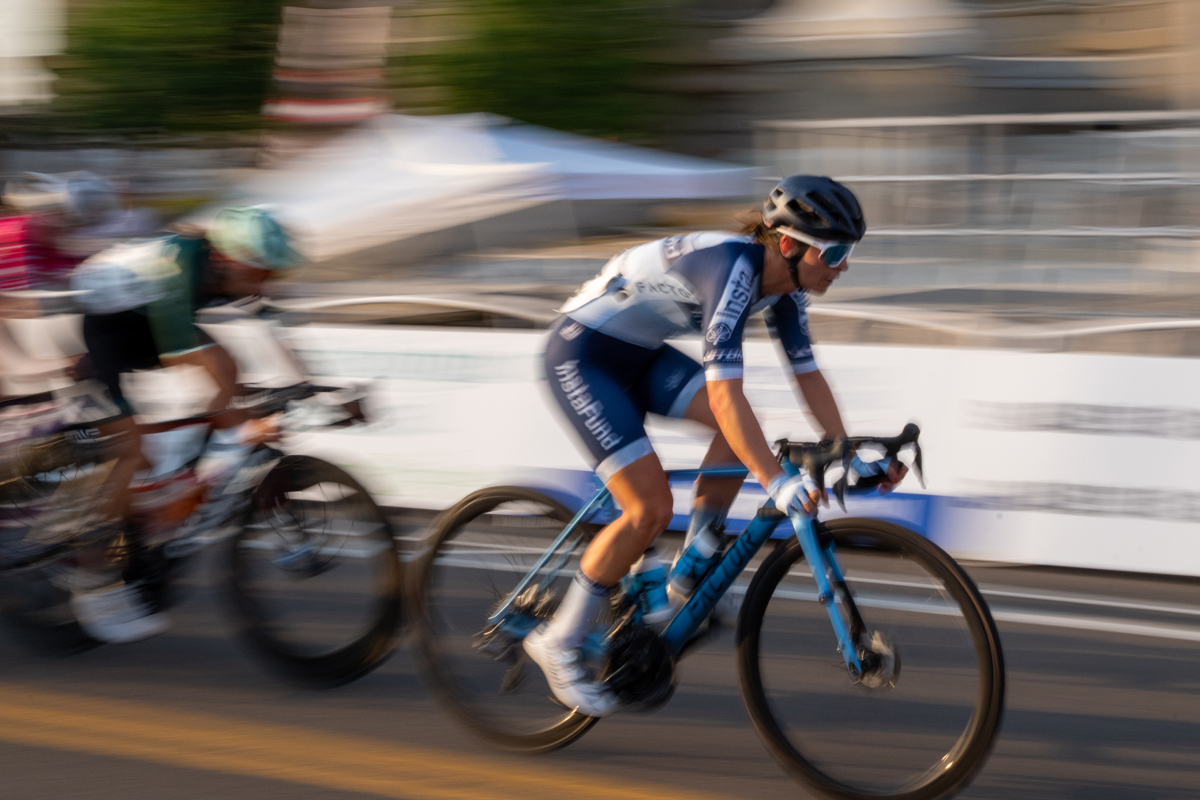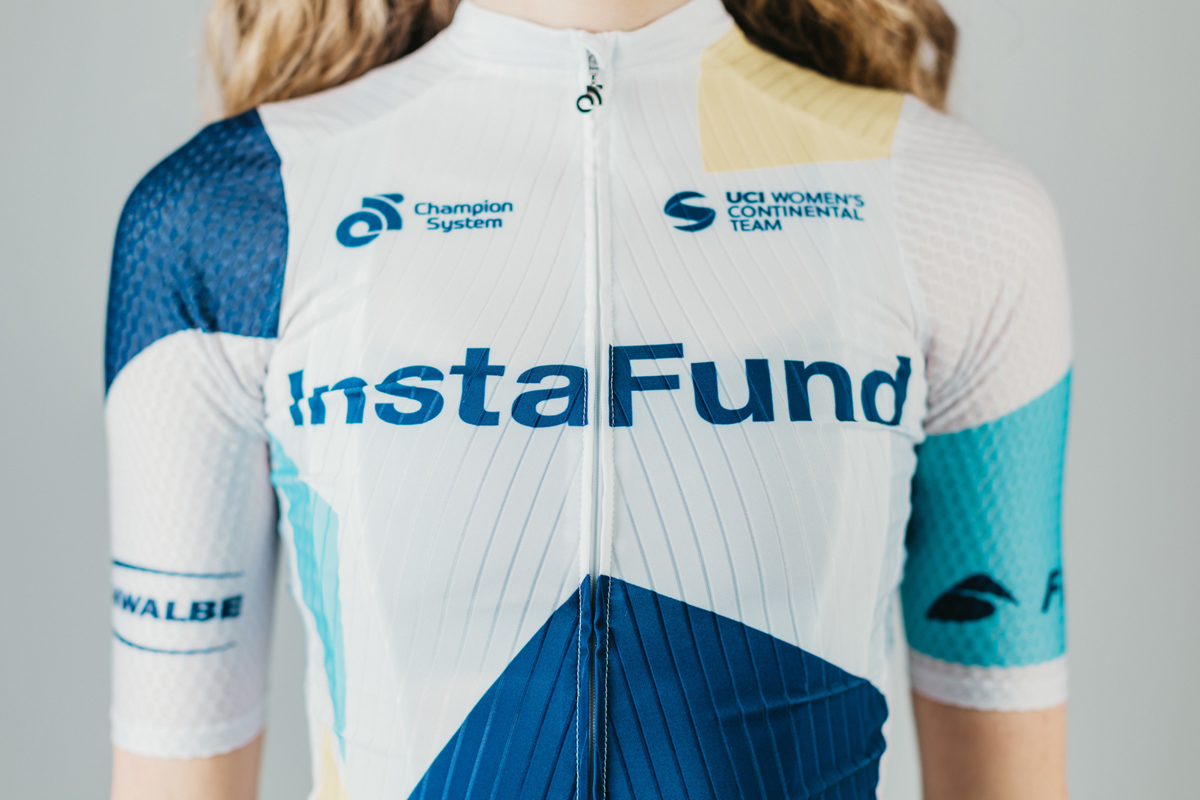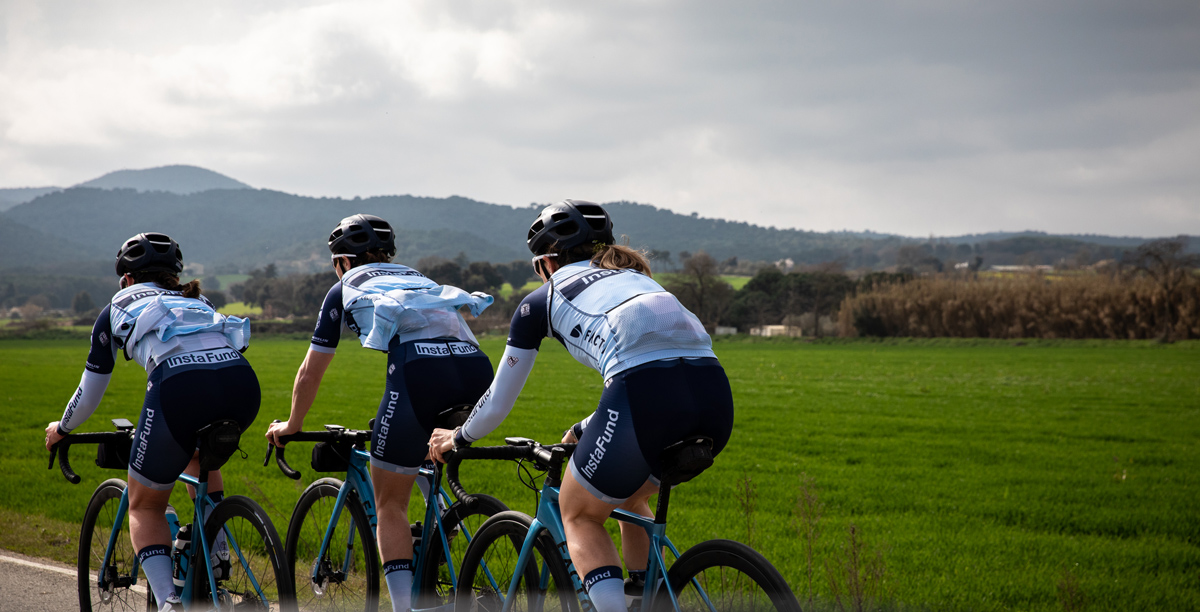InstaFund march on with carbon neutral plans
Continental team look to provide inspiration for their local community in Canada and beyond

Climate change has become an increasingly important topic in the world of cycling over the last few years, and for the Canadian Continental team InstaFund Racing the subject had led to a wholesale shift in the way the team operates.
The eight-rider women’s team are based in British Colombia but has an international roster that blends both local talents with international experience from the US, Switzerland, and New Zealand.
The team has been working towards a carbon neutral footprint since the start of 2021 and according to team owner Adam Korbin, those efforts will be expanded over the coming season as the team takes on a number of new and already developed initiatives, both domestically and internationally.
“We formed the team about four years ago and we wanted to take things in a different direction,” Korbin tells Cyclingnews from his kitchen in British Columbia.
“We saw that cycling, and women’s cycling in particular, had a real appeal. From our very origins we wanted help advance the opportunities that women have in sport. I think that within our world we achieved that in the first few years but then we expanded our goals and discovered that a carbon neutral agenda was something that we wanted to achieve. It also aligned with our goals at InstaFund.”
The bank, which Korbin is also the president of, is centered in Vancouver and knows full well about the devastation that climate change can bring. In late 2021, the area was hit by serious flooding and infrastructure damage to homes, roads and other transport links.
The brand had already set out on their long-term aim of running both a sustainable women’s team and moving towards a carbon neutral footprint but the floods brought home the climate change message to the wider community that the title sponsor supports.
Get The Leadout Newsletter
The latest race content, interviews, features, reviews and expert buying guides, direct to your inbox!
Not only that but the team aim to inspire the BC local to join them in their efforts to help the environment.
“Instafund’s own market is the lower part of British Columbia, so we’re talking about a geographical area of about three hours of driving,” Korbin says.
“So we’re locally orientated and a lot of the population lives alongside the Fraser River. We’ve aligned ourselves with a group called the Fraser RiverShed Society. Their objective is to educate the people about the river but also put words into action and one of things we’re supporting is to replant the river with indigenous plants. That will help maintain the banks of the river and I highlight that because we had a major flood in the fall that basically cut off a lot of our highways. Climate change really came home to a lot of people. It’s very important to get that message of how important the river is to the people of BC.”

The riders on the roster, including Holly Henry, Rylee McMullen, Doris Schweizer, and Heidi Franz have all bought into the ethos and direction of the team and what they’re trying to achieve.
“Not surprisingly they’ve all bought into it and embraced it,” Korbin adds.
“I think that it’s given them meaning and purpose aside from racing. I’ve been encouraged by the amount of feedback I’ve had from the riders about how important it is for them. If you check out our Instagram you can see all the great things are riders are doing for the environment. We had riders help with a trash clear-up event at a track race last year, for example, and we were blown away by the locals who helped, too. We were blown away by the support from the community and there wasn’t much left to do but shake hands and they really appreciated the effort.”
While the has made strides in the last 12 to 24 months, not every aspect is attainable at this stage. Riders still need to travel to races and packages full of kit and bikes still need to be transported. However there are measures that InstaFund – and other teams – can implement. International travel has been minimized to a central point in the calendar, the team works tirelessly with their partners to encourage improvements, and bikes are stripped and recycled at the end of the year in order to make sure that no equipment is wasted.
“We have no single-use plastics in our team and we’re encouraging our partners to reduce the number of single-use plastics that they use, too. We aim to increase the longevity of our products, so that means turning race bikes into training bikes. We’re recycling a lot of material off those bikes that can’t be used. We’ve taken our kit design to the next level in that we’ve reduced the number of transient sponsors on our kit design to ones that have signed multi-year contracts. It means that our kit can be used for multiple years.
“On the racing side, we’re limiting our air travel. That’s partly around budget because we’re a Continental team, but we’re using more cars and the team van, so by reducing the number of flights, we’re making an impact. Then with our international block of racing, we’re flying everyone over once around August until October, rather than having them commute back and forth.”
Korbin doesn’t wish to preach to other teams, he’s at pains to stress that during the interview, and what works for his squad and his female riders may not be instantly attainable for WorldTour squads with greater demands in terms of races and travel. But there are certainly lessons to be shared and implemented from the Continental team that might be small in scale but big on ambition.
“You know, cycling has been part of my life for years,” Korbin says towards the end of the interview.
“My great uncles raced bikes in Vancouver back in the 1920 and one of my uncles was the sports editor for the local paper, the Vancouver Province. I’ve never cycled competitively but I’ve inherited my dad’s Peugeot from back in the 1960s and then I rode to get to school. Cycling has had a huge appeal to me, it’s a romantic sport, and the history really appeals to me.
“The goal for us is an evolution. To become carbon neutral, it’s a process but you have to start looking at it or you’ll just remain stuck doing the same things. Booking multiple flights that might not be needed, opening up the same packages, but trying to go carbon neutral provided a curiosity in terms of what can we do and where we can make a change.”

Daniel Benson was the Editor in Chief at Cyclingnews.com between 2008 and 2022. Based in the UK, he joined the Cyclingnews team in 2008 as the site's first UK-based Managing Editor. In that time, he reported on over a dozen editions of the Tour de France, several World Championships, the Tour Down Under, Spring Classics, and the London 2012 Olympic Games. With the help of the excellent editorial team, he ran the coverage on Cyclingnews and has interviewed leading figures in the sport including UCI Presidents and Tour de France winners.
